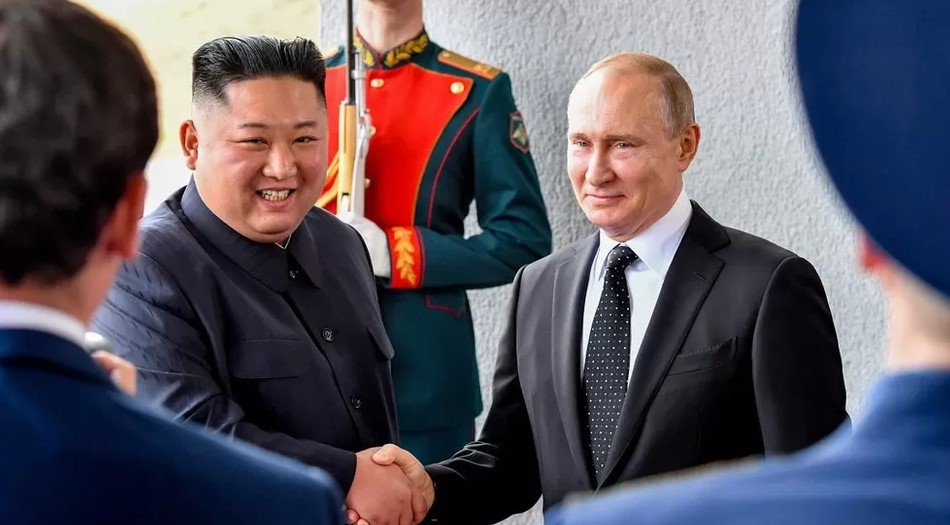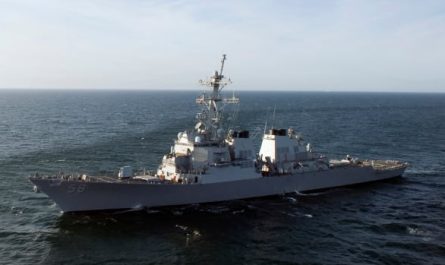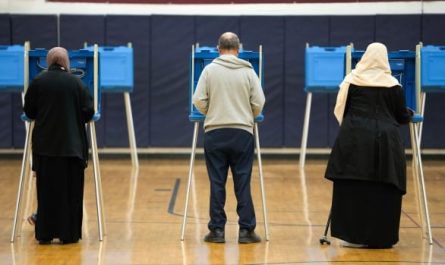Reports that North Korean leader Kim Jong Un wants to travel to Russia this month have alarmed the United States and its allies.
According to US officials, he plans to meet with President Putin to discuss the prospect of North Korea providing Moscow with weapons to bolster its fight in Ukraine.
An arms deal between North Korea and Russia appears reasonable at first glance.
Russia is in dire need of artillery shells and ammunition for the ongoing conflict in Ukraine, and North Korea is in a position to provide both.
In contrast, sanction-depleted Money and food are necessities in North Korea. The country is now more cut off than ever due to the closing of borders for over three years and the breakdown of discussions with the United States in 2019.
Under the surface, though, it creates room for Pyongyang and Moscow to begin cooperating more closely with one another. The United States has been sounding the alarm about the possibility of a weapons deal between the two countries for some time, but a summit between Kim Jong Un and Vladimir Putin takes this to a whole new level.
To the United States, preventing North Korean weapons from reaching the frontline in Ukraine appears to be a primary priority, but in Seoul, worries have been raised about what Pyongyang would gain from selling its weaponry to Russia.
Mr. Kim will be able to demand a high price from a desperate Russia.
Perhaps he could ask Russia for further military aid. According to a briefing given by South Korea’s intelligence service yesterday, Russian Defense Minister Sergei Shoigu had proposed that Russia, China, and North Korea perform combined naval maneuvers.
In the future, Mr. Kim may also have access to Russian weaponry.
By far, however, Mr. Kim’s most worrisome request would be for Mr. Putin to assist him with cutting-edge weapons technology or information to aid him in advancing his nuclear weapons programme. Key strategic weapons, including a spy satellite and a nuclear-armed submarine, remain difficult for him to manage.
This kind of collaboration, however, is seen as highly unlikely by officials in Seoul, who fear it may prove strategically harmful for Russia.
Research fellow at the Asian Institute for Policy Studies Yang Uk pointed out that Russia might still provide funding for North Korea’s nuclear program even if it doesn’t sell weapons in exchange. In exchange for oil and food, Russia could help revitalize North Korea’s economy and fortify the country’s armaments. For them, it’s a new way to make money that they wouldn’t have otherwise.
Military strategist and weapons specialist Mr. Yang continued, “For 15 years we’ve built up a network of sanctions against North Korea, to stop it from developing and trading weapons of mass destruction.” And now Russia, a permanent member of the UN Security Council, has the power to bring the whole thing down.
North Korea has been more reliant on China to overlook sanctions violators and provide food aid as sanctions have been tightened. North Korea has been able to further build its nuclear arsenal without major consequences for the past year because Beijing has refused to punish it for its weapons tests at the UN Security Council.
China sees value in maintaining Pyongyang as it creates a safe haven for its citizens from the US military stationed in South Korea.
However, Pyongyang has long been wary about being too reliant on China. Mr. Kim can now choose from a wider pool of potential backers as Russia actively seeks new alliances.
The North Korean leader may believe he can extract even more concessions from Moscow than from Beijing because of Russia’s desperation. Putin might be willing to remain mute in the face of a North Korean nuclear test, but Xi Jinping might find this to be unacceptable.
A professor at Singapore’s S Rajaratnam School of International Studies, Dr. Bernard Loo, has compared North Korea’s behavior during the Cold War to a child playing off one parent against another.
However, it is not yet clear if the scheduled meeting will actually take place.
Mr. Kim does not go outside of North Korea lightly or often. Because of his heightened sense of insecurity, he avoids international travel at all costs. He took an armored train on his most recent international excursions, to Hanoi in February 2019 to meet with Donald Trump and to Vladivostok in April 2019 to meet with Mr. Putin. It took us two full days to travel across China to reach Hanoi.
It is unknown how secretive the two leaders wanted their meeting to be; nonetheless, it is plausible that the United States hopes to scare Mr. Kim away from the meeting and the potential arms transaction by making it public.
However, Dr. Loo does not believe Mr. Kim would have much wiggle space, saying, “Given the reports about three-way military exercises, it would be difficult to cancel these kinds of events without everyone ending up with egg on their face.”
Since Russia’s invasion of Ukraine, the United States has been trying to prevent deals by releasing intelligence. So far, both Pyongyang and Moscow have rebuffed rumors that they are planning an arms swap. Neither party is likely to want this transaction to be made public.




